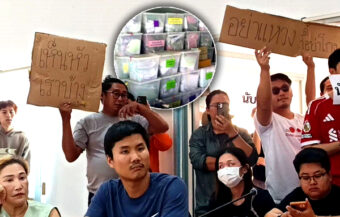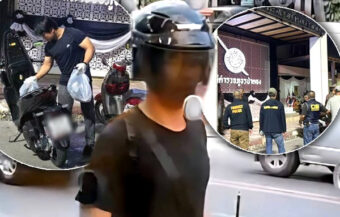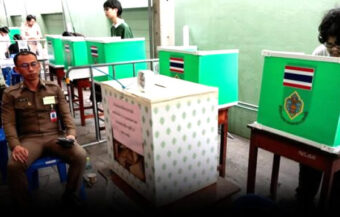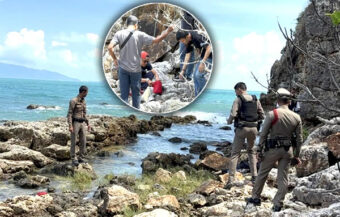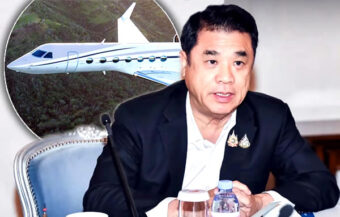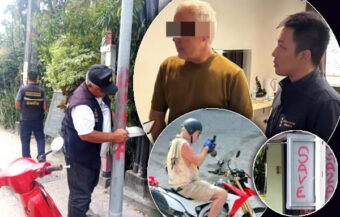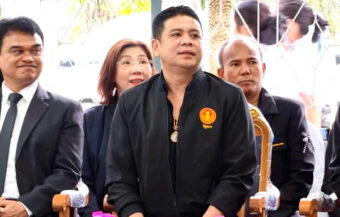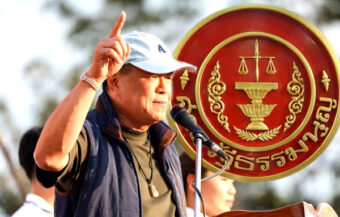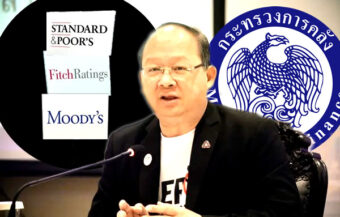US academic Paul Chambers is challenging his dismissal from Naresuan University and the revocation of his visa after Thai prosecutors dropped royal defamation charges. His legal team says rules were ignored and his future in Thailand now hangs on an immigration review.
Well-known American academic Paul Chambers, who has lived in Thailand since 1993, is challenging his dismissal from Naresuan University in Phitsanulok. In late April, the professor received official notices effectively terminating his employment. The dismissal was also backdated to April 9th, just one day after he was formally charged with lèse-majesté in Phitsanulok on April 8th, 2025. His case is now being taken up by Thai Lawyers for Human Rights. The organisation argues that, although the charges against the 58-year-old scholar have since been dropped, he is still being unfairly treated—both under the university’s internal regulations and Thailand’s strict immigration laws. At present, Chambers’ visa is believed to be under review. However, it may not be sustainable if his employment is no longer valid. Conversely, his job may have been terminated precisely because of his visa status.

American defence analyst Paul Chambers is challenging the termination of his employment at Naresuan University and the revocation of his visa. Although prosecutors have dropped lese-majeste charges, his immigration status and academic career remain under threat.
According to Thai Lawyers for Human Rights (TLHR), the university acted unlawfully and without following proper internal procedures.
Chambers, 58, has lived in Thailand since 1993. He is widely respected for his work on civil-military relations and Southeast Asian politics, particularly in Thailand.
However, his future in the kingdom has grown increasingly uncertain since legal and administrative actions were launched against him.
Legal case dropped after webinar charge but visa revoked and job ended within 24 hours of his court hearing
In early April, Chambers was formally charged under Section 112 of Thailand’s Criminal Code, the royal defamation law.
The charge stemmed from an online academic webinar notice. The event was hosted by Singapore’s ISEAS–Yusof Ishak Institute and focused on military and police reshuffles in Thailand. Chambers was listed as a speaker, due to his recognised expertise in the area.
Nonetheless, the prosecution case quickly collapsed. On May 1, state prosecutors in Phitsanulok announced that they would not proceed with charges. They reviewed evidence submitted by police—who received the complaint from the powerful Third Army Region—and found it lacking.
They ruled that the material did not meet the criteria for defamation of the monarchy. Despite this, the fallout for Chambers intensified. Just one day after acknowledging the charge to prosecutors, his visa was revoked. Days later, on April 21 and 24, Naresuan University issued two notices ending his employment.
University accused of overstepping authority and failing to follow legal and procedural obligations
Vice-Rector for Administration Panu Bhuddhawong signed both notices, acting in the rector’s stead. Thai Lawyers for Human Rights claim Panu exceeded his legal authority and failed to follow university rules on termination.
According to the rights group, Chambers’ dismissal was made retroactive to April 9—the same day his visa was cancelled. This date also fell just one day after he met with Phitsanulok police and was charged. The organisation argues the timing was deliberate, suggesting retaliation rather than a neutral administrative process.
University policy states that staff can only be dismissed for serious misconduct or disqualification. Chambers, they say, met neither condition.
Moreover, his employment contract includes explicit protection. Termination requires either documented failure—such as poor performance—or three months’ advance notice. None of these were followed, Thai Lawyers for Human Rights claims.
Dismissal bypassed internal committee rules while immigration seized passport despite dropped charges
Furthermore, Chambers was denied a chance to explain himself or respond to any accusations. There was no warning, no hearing, and no evaluation process. By regulation, an investigative committee must be formed before any action is taken against university staff. No such committee was established in this case.
Although prosecutors dropped the case, immigration officials seized Chambers’ passport once more. They had initially returned it after the court was notified of the decision not to indict. However, Phitsanulok Immigration re-confiscated the document pending a visa status review. Now, an immigration committee will decide whether the revocation stands—and whether Chambers must leave Thailand.
If the committee upholds the revocation, deportation could follow. Chambers would be barred from continuing his work and research in Thailand, where he has lived for over 30 years. He is presently unable to work, travel, or renew his documents, placing his livelihood in limbo.
The original complaint against him reportedly focused on the language used in the webinar announcement. Chambers maintains he neither wrote nor approved the text. That description has since been removed from the ISEAS–Yusof Ishak Institute’s website.
Chambers remains in limbo despite acquittal as broader issues over due process raise fresh concerns
Despite being cleared of any legal wrongdoing, Chambers remains caught in a bureaucratic web. His legal team warns that the case reflects a broader climate of fear and shrinking academic space.
“This is not just about one professor,” a representative from Thai Lawyers for Human Rights said. “It’s about the rules being ignored and institutions failing to uphold basic rights.”
As of now, Chambers is appealing both his dismissal and the revocation of his visa. He remains in Thailand but under increasingly precarious conditions. Although the criminal charge was dropped, administrative repercussions may succeed where legal prosecution failed.
Phitsanulok Attorney General decides to drop charges against US academic Paul Chambers in case review
Defence Minister: Attorney General expediting a ‘thorough’ review of the Paul Chambers case at all levels
The outcome of the immigration review will determine his fate in the coming weeks. Meanwhile, Thai Lawyers for Human Rights continues to document the case as an example of improper use of authority against a foreign scholar.
Whether Chambers will be allowed to remain in the country he has called home since the early 1990s is still unknown. Right now, he awaits word from a committee that holds his future—and possibly his legacy—in its hands.
Join the Thai News forum, follow Thai Examiner on Facebook here
Receive all our stories as they come out on Telegram here
Follow Thai Examiner here
Further reading:
Third Army defends its role in the prosecution of American Professor Paul Chambers in Phitsanulok
Thaksin confirms that the Paul Chambers case now being raised by US trade negotiators with Thailand



